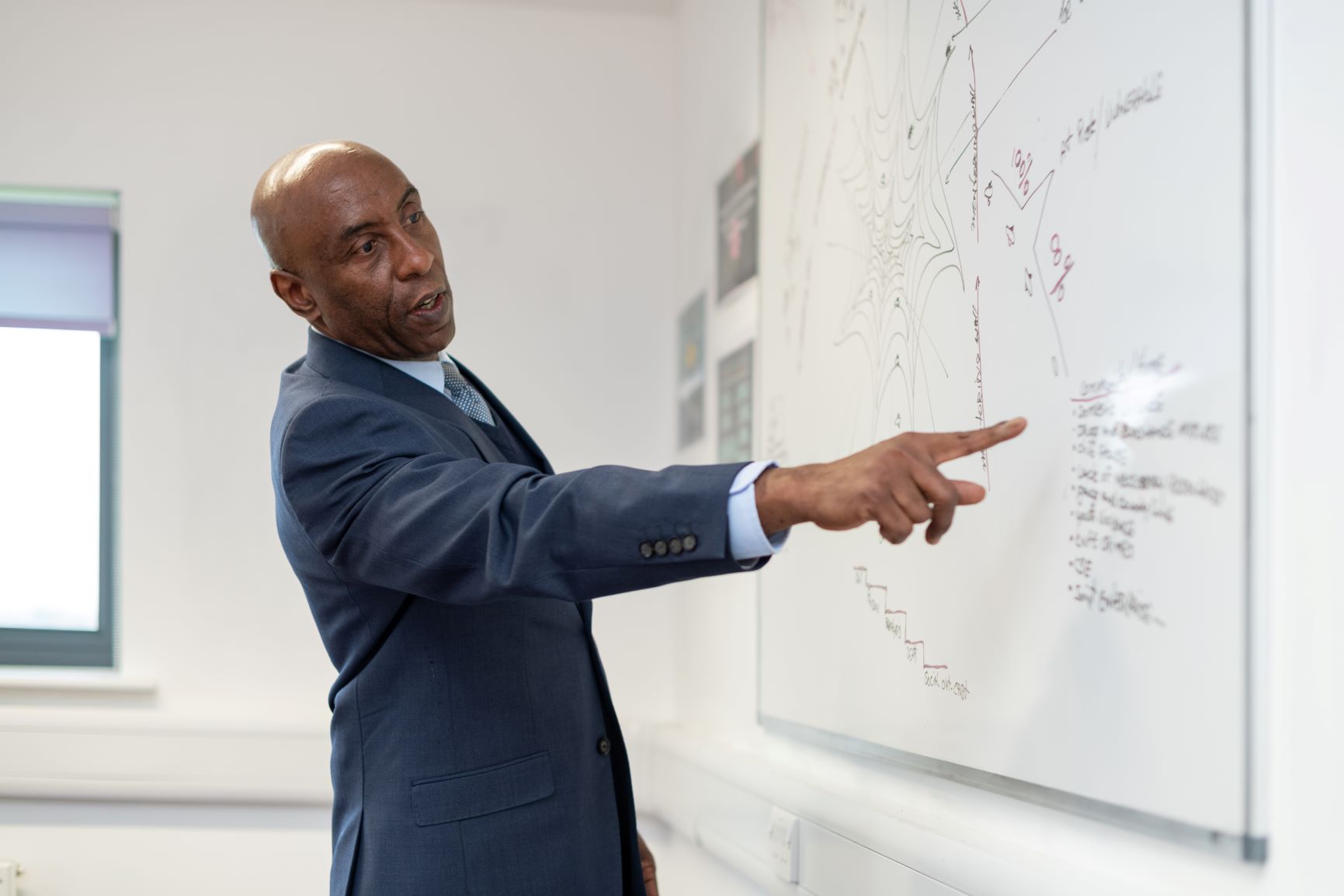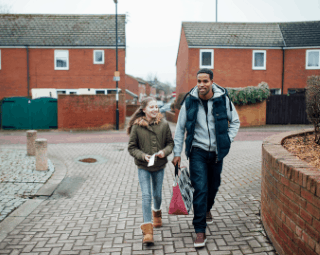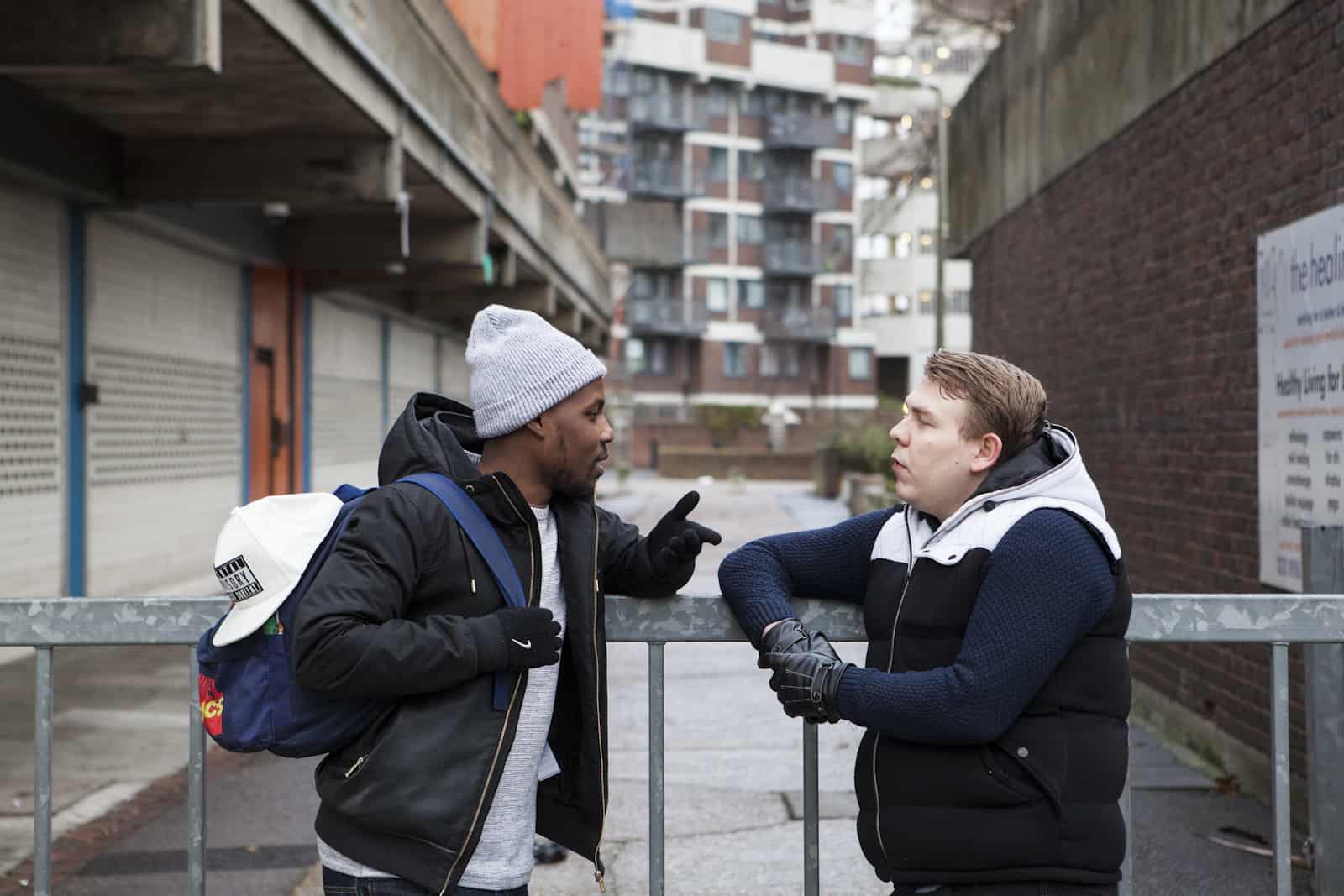Help for parents and caregivers
It can be extremely stressful if you suspect your child, or a child you are caring for, is involved in Child Criminal Exploitation. If you think a young person might be caught up in County Lines, serious youth violence or gang-related activity, there are things you can do to help. We have worked with many young people in that same place, and many of us have been there ourselves. St Giles are here to offer support, advice and guidance.
- Always be ready to listen. Grooming and exploitation that happens by groups is complex, rarely showing itself for what it is at the outset. As a result, your child may be extremely scared or have done things they are possibly ashamed about. They may not realise they are being exploited and think that any concerns you have don't apply to them or are an overreaction. You need to let them know you are on their side.
- You should not blame yourself. Children and young people who are targets for criminal exploitation come from all kinds of backgrounds and often from very loving homes.
- You are not on your own. You might feel like you are the only one going through this but there are many organisations and families that can help.
- It is likely to get worse before it gets better. There are no magic words, quick wins or easy solutions. Many parents and caregivers talk about the time and hard work they had to put in to help their child break free. The key is consistency. Even with professional support it is likely to take a lot of time and patience to get results.
- It won’t last forever – with the right support most children and young people break free from criminal exploitation and get their lives back on track.
There are a wide range of ways in which young people can become exploited and not all of them are immediately apparent. Furthermore, they can often change as criminal gangs become adept at ways to conceal tell tale signs. However, these include some typical ones:
- Changes in behaviour – this could include your child going missing, changes in the way they dress and speak, verbally and/or physically aggressive behaviour, anxiety and distress.
- Changes in friends and/or peer group
- Coming home unusually dirty and extremely tired.
- Not coming home at all or being away for extended periods without reason
- Truancy – if your child is skipping school and you cannot account for their whereabouts.
- Signs of physical injury – these can include injuries from assaults, concealing drugs and other illicit items in their bodies and self-harming.
- Unexplained cash or possessions – if your child is in possession of things they normally cannot afford.
This involves children and young people – in St Giles’s experience this is young people up to the age of 25 – who are trafficked, exploited and coerced into committing criminal acts such as drug dealing and violent crime. Frequently, this involves gangs and what is termed by professionals as county lines.
Do ask questions – but avoid appearing judgemental or overly challenging
- If you are worried don’t ignore it and do ask your child questions. But be mindful if they are involved in any form of exploitation they will be extremely scared and need a safe space to open up. Stay calm and try to keep control of your emotions no matter how high they may be running inside you. Try not to judge and do listen to what they say. Your child needs you on their side so avoid accusations or confrontation.
Reach out for help
- This is an enormous pressure on you so don’t feel you have to go it alone. Seek help from professional organisations (see below) and other people you trust. These could be your child’s teacher, a mentor, other family members or a faith leader. There will also be other parents affected by the same issue. It can be cathartic and productive to reach out to them and maybe get together for a self-help group.
Listen and be supportive
- It may take a lot of time for your child to open up to you but ultimately you want to be the one who they can honestly confide in. This might mean listening to your worst fears and trying to process them. However, try to let your child know that you want to listen to them and work with them to find a solution.
Remember that this is a low point and the situation can get better
- If you and your child work together and reach out for help, the situation will usually start to improve. Be prepared for setbacks along the way but the good news is that most children and young people will eventually get their lives back on track.
You may be reluctant to seek help because you are worried that the police may become involved. Whilst the police have a duty to investigate where crimes may have been committed it does not necessarily mean your child will be arrested and detained.
Organisations like St Giles have been training the police in issues around child criminal exploitation and raising awareness of the way in which exploited children and young people should be treated as victims rather than perpetrators. As a result, the police are much more aware of the bigger picture.
Whilst you will be probably be feeling very worried, try not to panic. Remember that your child will also be extremely scared, However, this time of turmoil represents a tipping point where even the most highly resistant young person is most likely to be receptive to offers of help. Offer them support, let them know you are still on their side and check out where you can get help.
St Giles runs a growing range of projects helping young people involved in or at risk of child criminal exploitation including county lines. Some of these need certain criteria to be met in order to access full casework support. However we will do our best to offer telephone support as a minimum wherever we can. Email us at info@stgilestrust.org.uk
Missing People’s Safecall service – this is a scheduled telephone call supporting young people, professionals and families affected by criminal exploitation including county lines: https://www.missingpeople.org.uk/get-help/help-services
Safer London supports young Londoners, their families and communities affected by violence and exploitation: https://saferlondon.org.uk/about-us/
The Children’s Society have a section of online material and resources specifically aimed at parents, caregivers and professionals who are supporting young people involved in county lines: https://www.childrenssociety.org.uk/what-we-do/our-work/tackling-criminal-exploitation-and-county-lines/county-lines-resources
Child Criminal Exploitation
In Summer 2021 our staff members put together a short mini-series highlighting five different vulnerabilities to Child Criminal Exploitation.
The videos draw on their professional expertise and lived experience. They are intended to highlight awareness of CCE and the grooming line.
With your support we will be able to make sure more young people stay safe

£25
could provide preventative educational sessions to young people at risk of serious youth violence.

£50
could provide one night emergency accommodation to keep a child safe.

£100
could provide one day of lifesaving 1:1 mentoring and support to a young person at risk of gang involvement.